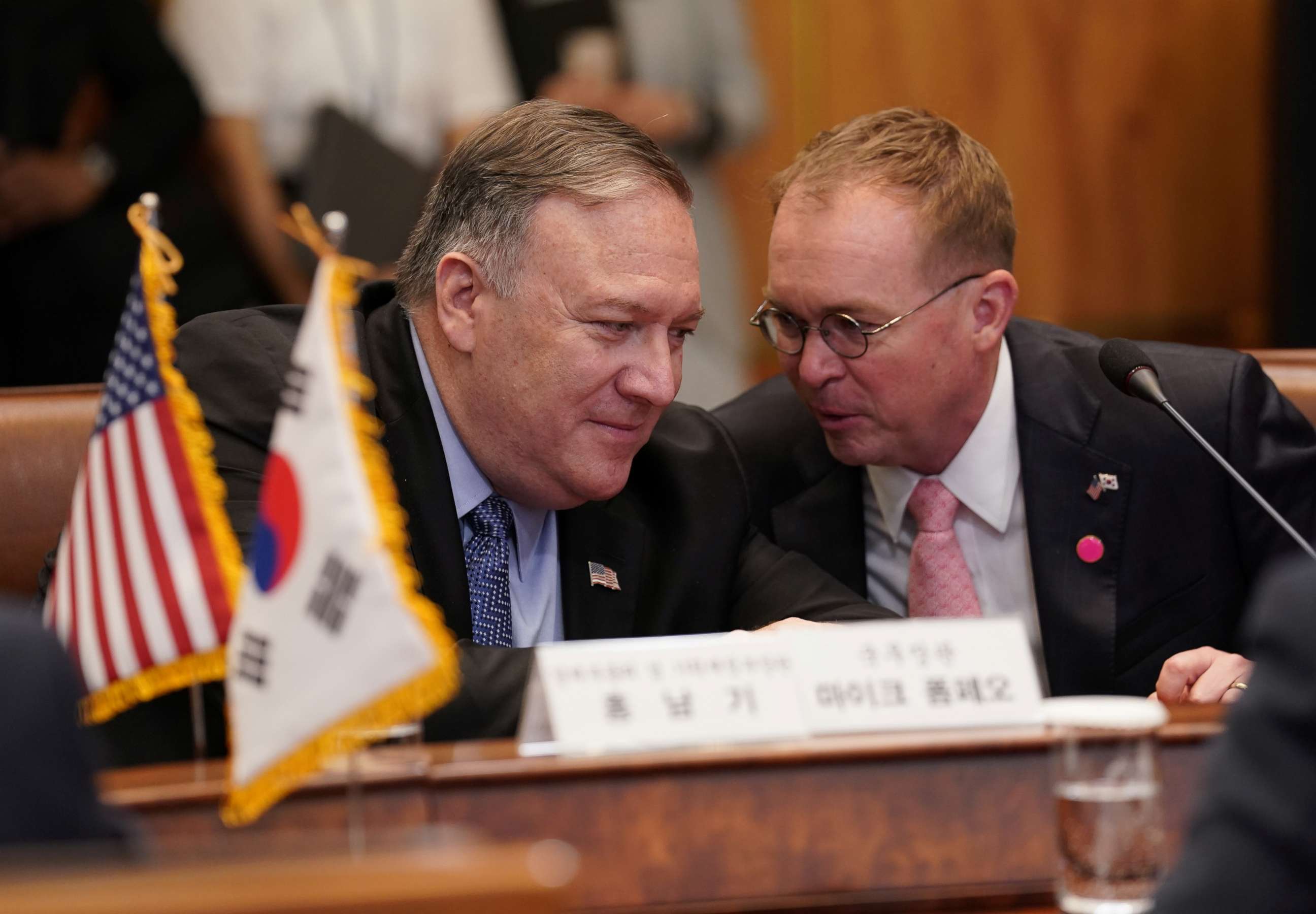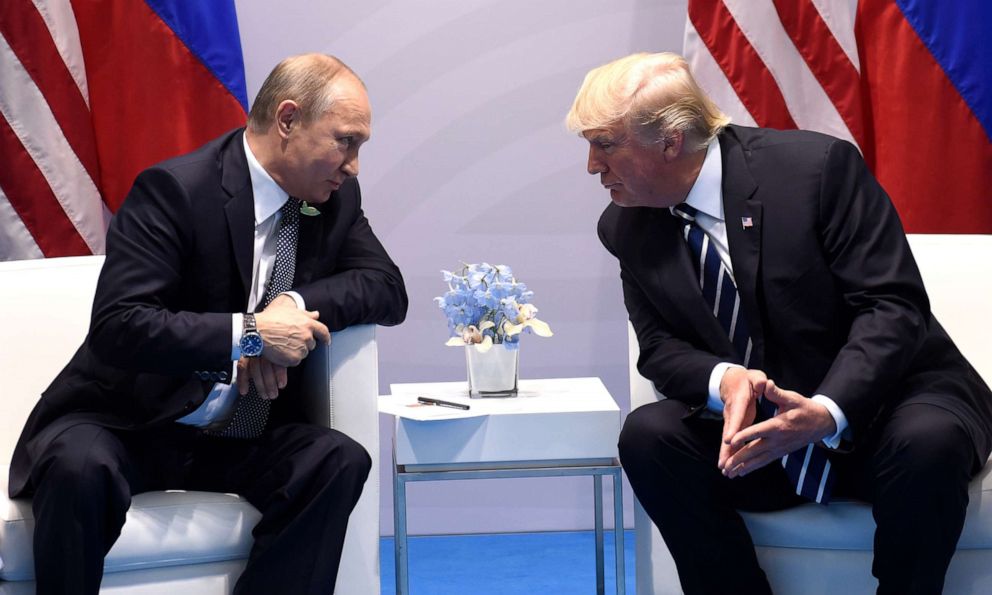Despite battle with Congress, Trump administration slow-walking $4 billion in aid, including key funds for Ukraine
The State Department may be forced to give up whatever funds it doesn't spend.
After standing down in a battle with Congress over $4 billion in foreign assistance cuts, the White House is still slow-walking funds for those same programs in a move that threatens their full implementation, according to two sources.
The decision is part of a larger fight over foreign aid between advocates, including senior Republicans and Democrats in Congress and Secretary of State Mike Pompeo, and fierce critics of it at the White House, led by acting Chief of Staff Mick Mulvaney.
The details of these caps come as the White House also ordered a review of $250 million of Pentagon funds for Ukraine's military, according to a U.S. official. The Pentagon recommended the aid should continue, but the decision now lies with the White House, the official confirmed.

Last Thursday, President Donald Trump stood down on what's called a rescission package that would have canceled about $4 billion of funds from the budget for the State Department and U.S. Agency for International Development. The White House's Office of Management and Budget, which Mulvaney once led, had ordered a freeze on those programs and pushed for them to be cut and returned to the Treasury.
The programs come from 10 areas, including global health, assistance to Europe to counter Russia and China, United Nations peacekeeping operations and countering drug trafficking.
Republican and Democratic leaders in Congress demanded that the White House stand down, saying the cuts would harm vital U.S. national security and foreign policies.
While the White House agreed, OMB quietly mandated that the State Department keep in place caps on spending for these programs -- allowing the department to spend only 2% of the funds each day.
"Within this daily rate constraint, the State Department and USAID are working diligently to comply with all relevant directives by obligating all specified funds by the end of the fiscal year" on Sept. 30, a State Department spokesperson said.

One source told ABC News there's concern that given the 2% cap, the department won't be able to spend all the money in the next month and could therefore lose it, arguing it would be a way of making the original rescission package happen but without formally notifying Congress.
Congress is on recess until Sept. 9, but advocates for U.S. foreign aid hope that lawmakers could enact a mechanism to extend the funding into the next fiscal year and save it.
The continued fight over foreign aid has also hit the Pentagon, where the White House put a hold on $250 million of military assistance to Ukraine. That decision also sparked outrage among lawmakers, who said pulling the funding would undermine the country's new president and work to help Russian President Vladimir Putin.
"Enough is enough. President Trump should stop worrying about disappointing Vladimir Putin and stand up for U.S. national security priorities," said Sen. Bob Menendez, the top Democrat on the Senate Foreign Relations Committee. "We have a responsibility to help Ukraine defend its sovereignty and deter Russia from further aggression."

The Pentagon has reviewed the funds and concluded that it should continue, a U.S. official confirmed to ABC News.
But the decision now rests with the White House. A State Department official declined to discuss internal deliberations and deferred questions to the White House. OMB did not respond to requests for comment.
Despite the review, officials said the administration's Ukraine policy hasn't changed, pointing to National Security Adviser John Bolton's visit to Kyiv this week. Bolton met President Volodymyr Zelensky, a television star and comedian elected president in April, and reiterated support for him and Ukraine's territorial integrity in the face of Russia's ongoing illegal occupation of Crimea and support for militant groups in eastern Ukraine.
The administration has committed more than $1.5 billion in security assistance to Ukraine in response to that aggression, including lethal weapons that Trump agreed to provide that his predecessor, President Barack Obama declined to, as well as capabilities to better secure its borders and ensure cooperation with NATO.





